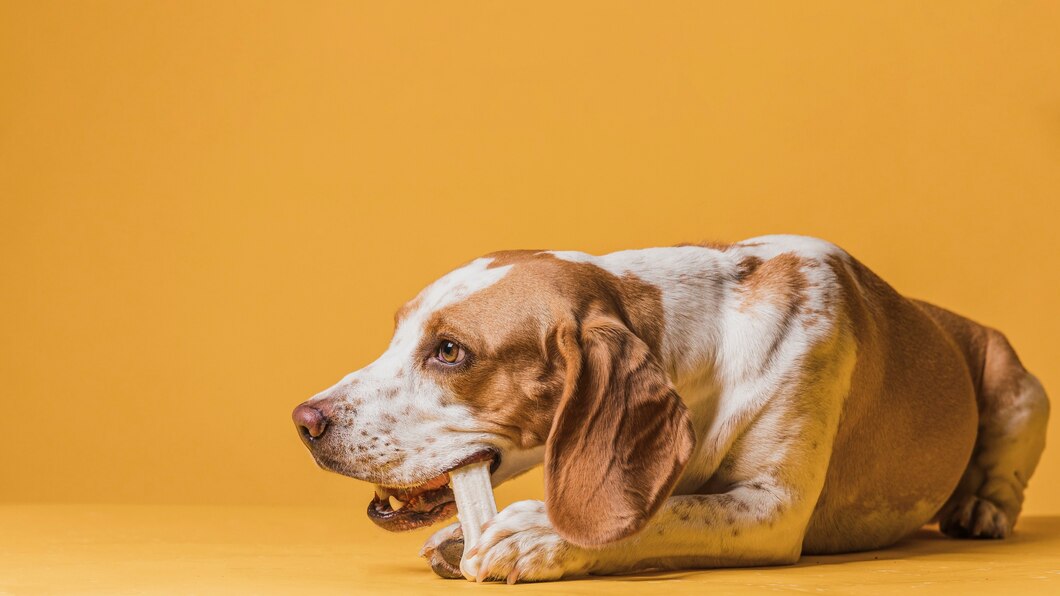Nylon bones are generally safe for dogs, but supervision is necessary. Choose appropriately sized and durable options to avoid risks.
Nylon bones are popular chew toys for dogs, providing mental stimulation and aiding dental health. These durable toys can withstand aggressive chewing, making them a favorite among pet owners. Not all nylon bones are created equal, so selecting the right size and type for your dog is crucial.
Avoid overly hard bones that can damage teeth or small ones that pose a choking hazard. Supervise your dog during chew sessions to ensure safety. Regularly inspect the bone for wear and tear, replacing it when necessary. Proper use of nylon bones can offer a safe and enjoyable chewing experience for your canine friend.
What Are Nylon Bones
Nylon bones are made from durable nylon material. This material is strong and can withstand a lot of chewing. Some nylon bones may contain flavorings to make them more appealing to dogs. Always check for any added chemicals or dyes.
There are different types of nylon bones for dogs. Chew toys are the most common type. Dental bones are designed to clean teeth while chewing. Edible nylon bones are also available, but they break down over time.
Benefits Of Nylon Bones
Nylon bones can help keep your dog’s teeth clean. They can remove plaque and tartar. This helps prevent gum disease. Clean teeth lead to fresher breath. Dogs enjoy chewing, which makes them happy. Happy dogs are healthier dogs.
Nylon bones are very strong. They last longer than other chew toys. Even aggressive chewers find it hard to break them. This means fewer trips to the pet store. You save money over time. Your dog stays entertained longer.
Potential Risks
Nylon bones can break into small pieces. These pieces can become a choking hazard. Dogs may swallow these pieces. This can block their throat. It can make it hard for them to breathe. Always supervise your dog with nylon bones.
Nylon bones are very hard. They can cause tooth fractures. Dogs can hurt their teeth when chewing. Broken teeth can be painful. They may need a vet visit. Choose softer toys to protect your dog’s teeth.
Choosing Safe Nylon Bones
Nylon bones should fit the size of your dog. Small dogs need small bones, and big dogs need bigger bones. The shape should not have sharp edges. Sharp edges can hurt your dog’s mouth. Choose bones with rounded edges and a smooth surface.
Always buy nylon bones from trusted brands. Check reviews online before buying. High-quality bones last longer and are safer. Avoid cheap, no-name brands. They may break easily and hurt your dog. Look for bones made in countries with good safety standards.
Supervision Tips
Always watch your dog while they chew. This helps prevent accidents. Make sure the nylon bone is the right size. A bone too small can be a choking hazard. Encourage gentle chewing. Aggressive chewing can break teeth. Rotate toys to keep your dog interested. This also helps check for damage.
Check the bone daily for damage. Look for cracks or splinters. These can hurt your dog. Replace the bone if it gets too small. A small bone is easy to swallow. Watch for rough edges. They can cut your dog’s mouth. Always choose high-quality nylon bones.
Alternatives To Nylon Bones
Natural chews are great for dogs. They are usually made from real animal parts. These chews can include bully sticks, pig ears, and cow hooves. Dogs love the taste. They can chew on them for hours. It keeps them busy and happy. Natural chews are often safer than nylon bones. They are less likely to break teeth or cause blockages. Always supervise your dog while they chew.
Rubber toys are another safe option for dogs. These toys are durable and long-lasting. They come in many shapes and sizes. Some even squeak or hold treats. Dogs find them fun and engaging. Rubber toys are gentle on teeth. They are also easy to clean. Make sure to choose a toy that is the right size for your dog. Always check for wear and tear.
Veterinarian Advice
Veterinarians often question the safety of nylon bones for dogs. These chew toys can pose risks if ingested or if they splinter. Always supervise your pet while they chew.
Professional Recommendations
Veterinarians often suggest nylon bones for dogs. These bones are durable and can last long. They help in keeping your dog’s teeth clean. Chewing on them can reduce plaque and tartar buildup. But, always choose the right size for your dog. Too small bones can be a choking hazard. Make sure to supervise your dog while they chew.
Regular Check-ups
Regular check-ups with the vet are essential. The vet can examine your dog’s teeth and gums. This helps in identifying any problems early. If your dog chews nylon bones often, it is crucial. The vet can ensure there are no broken teeth or gum issues. Regular visits keep your dog healthy and happy.
Another Post: How Do I Know Your Dog Crossed the Rainbow Bridge
FAQ
Are Nylon Bones Safe For Dogs?
Nylon bones are generally safe but supervise use. Choose appropriate size and durability to avoid choking or splintering.
Can Nylon Bones Cause Dental Issues?
Nylon bones can cause dental wear if too hard. Select softer options to protect your dog’s teeth from damage.
How Often Should Dogs Chew Nylon Bones?
Limit chewing sessions to 15-20 minutes. Frequent breaks prevent excessive wear on teeth and reduce the risk of injury.
Conclusion
Nylon bones can be a safe option for many dogs. Always monitor your pet while they chew. Choose the appropriate size and type for your dog’s breed. Regularly inspect the bone for wear and tear. Consult your vet for personalized advice.
Ensuring safety will keep your dog happy and healthy.

